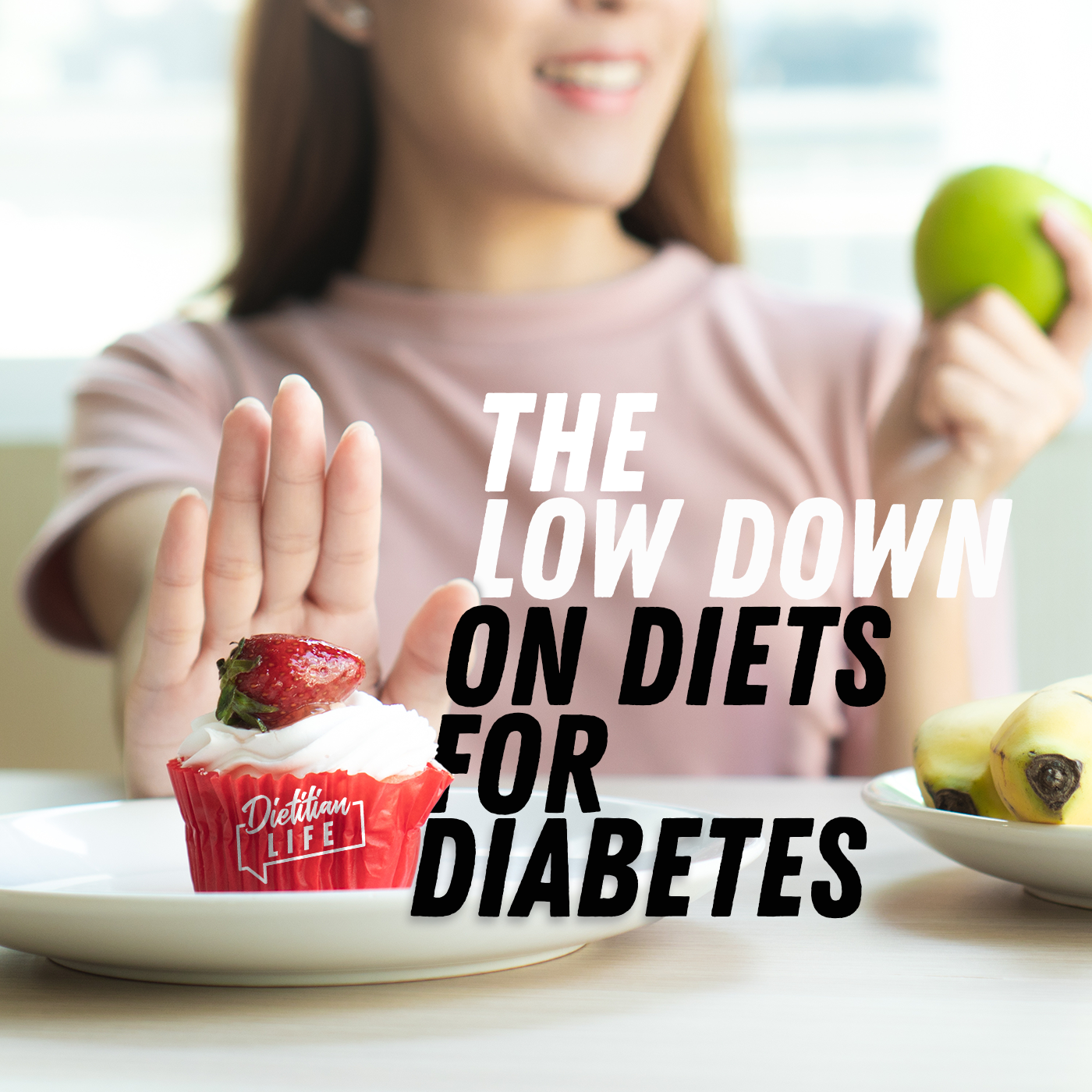As dietitians, we can play a significant role in helping those with newly diagnosed Diabetes as well as those who have had the condition for many years. Given the progressive nature of the condition, we must remain a key part of the client’s ongoing care so we can provide optimal management.
Whilst there is not a magic diet for managing Diabetes, there are some key evidence-based dietary considerations that we should include as part of our dietetic education and interventions. Within our approach, we must ensure it is individualised to each client to consider variables such as weight status, chronic diseases & risk factors, age, medication, and current level of glycaemic control. The latter is best informed by requesting their 3 monthly HbA1c values and reviewing any self-monitoring of their blood sugar levels.
Carbohydrates Are Key!
Of utmost importance is modifying and controlling carbohydrate intake, which should be of no surprise given carbohydrates have the most influential impact on blood sugar levels. Below are a few key considerations when working with clients with Diabetes.
- CONSISTENCY – Consistent carbohydrate intake across the day should be supported by food suggestions and meal plans as required. The general guideline for carbohydrates at main meals is ~30g, with 0-15 g for snacks, if being consumed. These recommendations should always be tailored to the individual, but additional emphasis is needed when the client is taking insulin or sulphonylureas/meglitinide due to their increased hypoglycaemic risk when reducing carbohydrate intake.
- REDUCTION – Lowering the total amount of carbohydrates consumed as part of your management plan will assist in improving glycaemic control. The key here is focusing on removing the poor quality, nutrient deplete foods from the diet and allowing for space for other alternatively nutritious foods. This should not be considered for pregnant and lactating women, or those at risk of disordered eating, as well as anyone who has kidney disease.
- FRUCTOSE – Don’t restrict fruit sugar. As a result of the fibre, fluid and micronutrient value of these foods, most studies show an improvement in glycaemic control when compared with an energy matched diet of sucrose or starch. At intakes below 12% of total daily energy intake, fructose will not produce any negative effects on BGL’s or blood fats.
- SSB’s – Consistently proven to worsen BGL’s, increase weight gain and encourage the progression of chronic disease associated with Diabetes, sugar-sweetened beverages should be discouraged and either replaced for water or a non-nutritive sweetener. There are 7 safe FDA-approved sweeteners which could be used instead, and these include:
- Sucralose (Splenda)
- Saccharine
- Acesulfame K
- Neotame
- Aspartame (Equal)
- Stevia
- Luo han guo (Monk fruit or Swingle fruit extract)
Studies have shown that sugar alcohols similarly appear to have less of an impact on postprandial glucose compared to sucrose and glucose but in comparison, the sweeteners keeping these to below 20g per day is crucial to avoid polyol-induced diarrhoea.
- FIBRE – There is no doubt this should be included in the carb convo, but it is most important you are advocating for all types of fibre; aiming for at least 3-4 types of fibre recommended to your client to bolster effects of weight loss, improved insulin sensitivity and glycaemic control, amongst other things.
- FRUCTANS – These prebiotic fibres should form your carbohydrate guidelines, including some form whether it is in onions, whole-wheat or inulin fibres. these have a glucose-lowering effect and have also been associated with increased HDL-cholesterol.
Fats Deserve Attention Too
In addition to carbohydrates, fats should be considered as part of the treatment plan in managing the heightened risk of CVD associated with Diabetes. As such the below strategies can be actioned:
- Minimising the intake of saturated and trans-fatty acids, aiming for less than 10% of saturated fatty acids (SUFAs) of total daily energy intake.
- Further positive reductions in CVD risk as illustrated by a 9-12% reduction in LDL cholesterol were documented in three randomised controlled trials (RCTs) when SFAs were less than 7% of total daily energy intake and cholesterol was kept to under 200mg per day.
- Adopting an approach which incorporates aspects of the Mediterranean diet, being rich in monounsaturated (MUFAs) and polyunsaturated fatty acids (PUFAs) can both benefit glycaemic control as well as lower the risk of CVD. Supplementing with omega-3 does not appear to generate the same benefits when compared to food sources such as fatty fish, nuts, and seeds.
- Intakes of PUFAs are associated with improvements to glycaemic control, sensitivity to insulin and improved insulin secretion.
- Aim for 2 servings (226g) of fish per week, selecting from any of the following: salmon, albacore tuna, mackerel, sardines, herring and lake trout.
- Nuts and seeds provide a source of plant-based omega-3 with the best choices being walnuts, flax seeds, chia seeds and soybeans.
Nutrition Supplement Benefits
As per usual advice and understanding, supplementation is often not necessary unless a deficiency is observed. This also includes supplementing for vitamin B12, which evidence suggests is at risk of deficiency in people on metformin. As part of our clinical management, this known deficiency risk should be closely monitored in applicable clients and addressed via supplementation as required.
In a review of 12 RCTs, probiotic supplements containing bifidobacterium and lactobacillus species resulted in moderate improvements in glycaemic control and lipid studies. In a separate study, yoghurt containing L. Acidophilus and B lactis also showed improvements in fasting glycaemic control over the 6-week duration.
Want to learn more? Get started with a FREE Dietitian Life membership to get exclusive access to the huge library of clinical advice, and practical dietetic resources.

